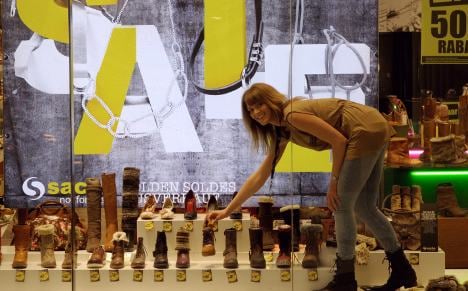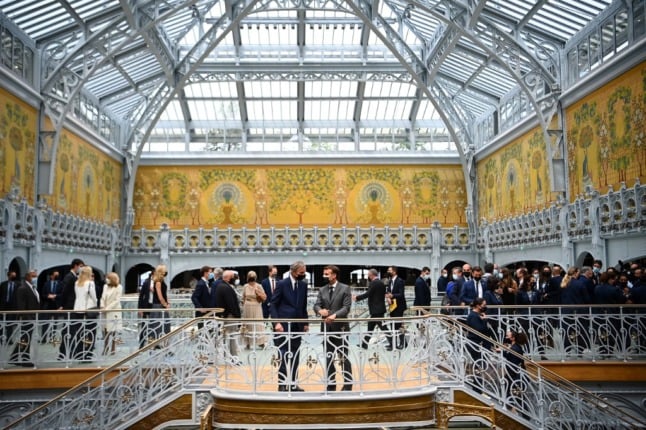German retail sales rose 0.8 percent in March from February in terms adjusted for price, season and calendar, according to provisional figures from the federal statistics office Destatis.
Analysts surveyed by Dow Jones Newswires had expected an increase of 1.0 percent for March following a drop of 0.9 percent in February and a decline of 1.0 percent in January.
On a 12-month basis, retail sales rose 2.3 percent in March.
Monthly retail sales data are volatile and subject to frequent revision. But analysts noted that the modest increase in March could not make up for the declines seen in the preceding two months.
“This modest rebound did not make up for a weak showing in the first two month of this year and left the first-quarter average level of retail sales about 1.0 percent lower than in the fourth quarter of 2011,” said Barclays Capital economist Thomas Harjes.
“Despite ending the quarter on a positive note, German retail sales have remained weak in early 2012, likely as a result of higher fuel prices and continued uncertainty related to the euro area sovereign debt crisis,” Harjes said.
A regular monthly poll of consumer confidence in the eurozone’s biggest economy last week found that while household sentiment has proved surprisingly resilient to the eurozone debt crisis in recent months, it is being increasingly eroded by high oil prices.
“However, in view of sound fundamentals, such as a strong labour market and low interest rates, we still expect household consumption to become a major driver of growth later in 2012,” Harjes said.
Natixis economist Constantin Wirschke agreed. “Due to labour market data released so far this year and higher wage agreements being signed for employees in several sectors, we believe this upward trend in retail sales could go on. Private consumption should be a solid second pillar of growth the German economy can rely on in 2012,” he said.
Other analysts were more sceptical of any upturn. “German retail sales remained lacklustre despite very positive fundamentals such as low unemployment and falling inflation,” said Christian Schulz of
Berenberg Bank.
“In March, sales rebounded after two weak months marred by harsh winter, (but) average monthly retail sales in the first quarter were 1.0 percent lower than in fourth quarter of 2011, not boding well for the private consumption component of gross domestic product,” he said.
AFP/hc



 Please whitelist us to continue reading.
Please whitelist us to continue reading.
Member comments